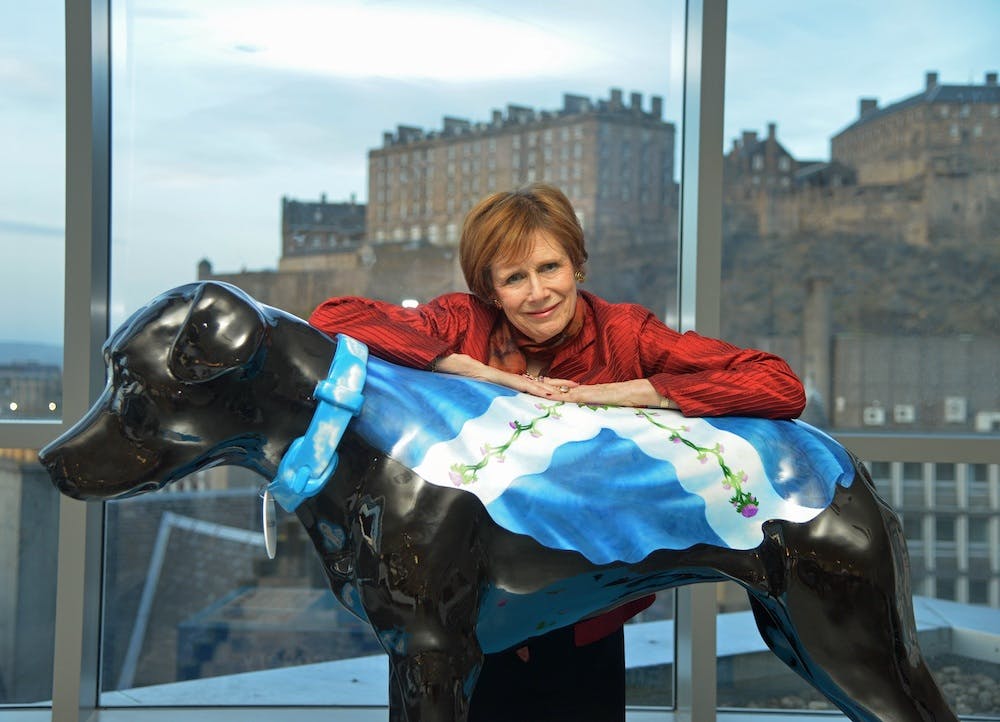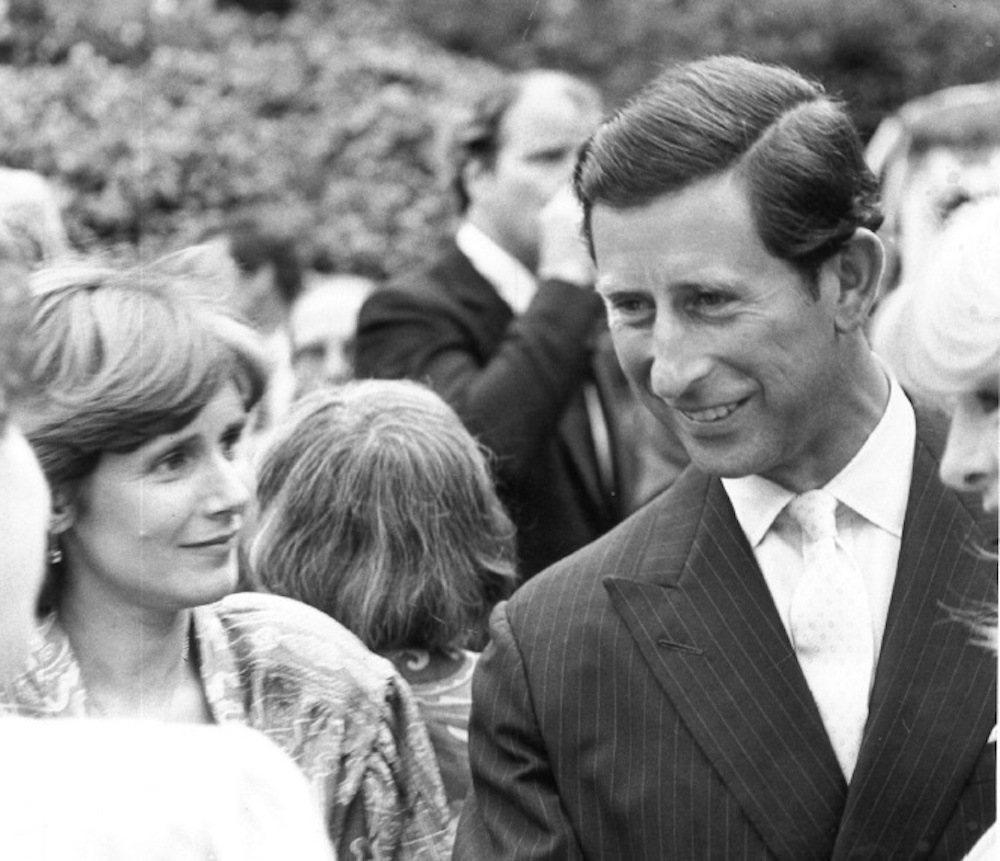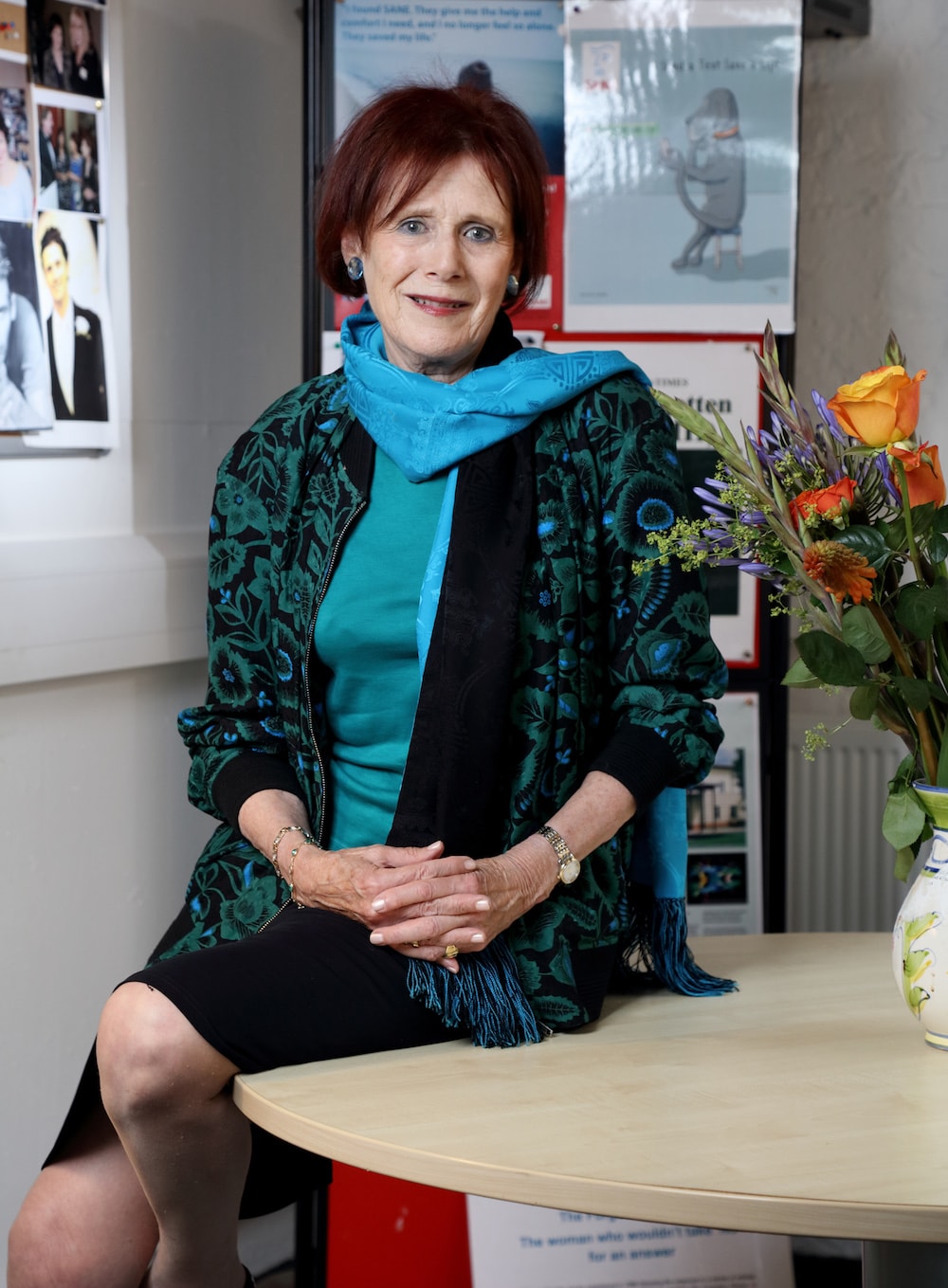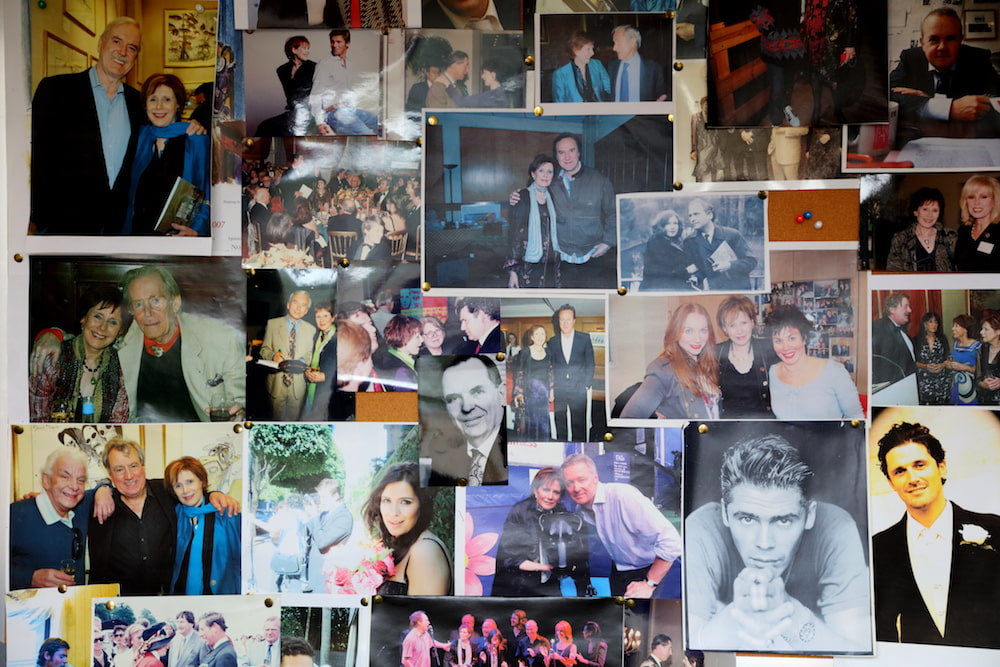The Big Interview: Marjorie Wallace, Founder of SANE
updated on May 15, 2019

Marjorie Wallace CBE was a celebrated journalist involved in some of the greatest scoops in British journalism. It was never her intention to found the independent mental health charity, SANE. Rather, the charity founded her.
Marjorie Wallace
In part one of Ms Wallace’s interview with Happiful, she discusses the creation of SANE, the current crisis facing the UK’s mental health services, and the “fear, secrecy and shame” that still surrounds mental illness.
You’ve called yourself an outsider who gives a voice to other outsiders living on the edge. How can you be an outsider and such a gifted networker?
I think that’s one of the most difficult questions I’ve been asked. It’s like a poacher turned gamekeeper. I do still feel I’m an outsider. I’ve never really joined the establishment. I’ve always seen the perspective of the person who feels there’s a screen between them and the rest of the world. But at the same time, you can’t just sit there looking through the screen. If you want to change things you’re going to have to move and shake. And to move and shake you’re going to have to involve people who’ve got the power to do so.
So you are a doer, not a thinker?
No, I think I’m a thinker. I spend a lot of time reflecting and distilling people’s thoughts and emotions into a form of poetry. But then if you want that poetry to have any dramatic effect, you have to go out there, you have to be on stage. You’ve got to face the cameras. You’ve got to say things that could get you into terrible trouble, but you’ve got to be counted and you’ve got to take the responsibility. Sometimes, I get up in the morning and think: “Oh I hope I never have to do another interview! Surely I can just curl up and have a little bit of peaceful sunlight?”
Really? I can’t see you saying that.
But the other half of me gets up and says: “If you’ve said you’re going to try to help someone, you better damn well do something about it, and you better tell the world what’s happening!” I’ve always been very, very feisty I suppose, especially about hypocrisy – I hate hypocrisy of any kind. I feel that if I can use words as weapons, then I can actually fight the hypocrisies that have led to so much unnecessary suffering.
Marjorie’s office wall shows photos of public figures who have supported SANE over the past 30 years
You were a wildly creative child. I’ve read that your mother said you were obsessed with other people’s suffering. Was she right?
I think she used to think I had too much imagination and that I became too involved in other people’s suffering. From a very early age I was reading and writing all these poems about heroes and heroines fighting the forces of darkness.
Did you see the battle between good and evil very clearly?
Really clearly. I saw myself at the forefront, you know, up there fighting against the shadows. There was always a sense that I had to go out and try to save people from suffering.
You were a mighty investigative journalist, and part of the greatest scoop in British journalism – exposing the Thalidomide scandal in 1972. Why did you leave journalism to found SANE?
In a way, it founded me. It was born out of a series of newspaper articles called “The Forgotten Illness” in the Sunday Times. The response to those articles was unprecedented. We were inundated with phone calls and letters. It was such an explosion that even the government was taken unawares. The response got focused on me as a single journalist who showed what it was like for someone to suffer a mental illness and to feel so lonely and desperate.

Marjorie pleading for funds from Prince Turk al-Faisal, 1993
Because you were uncovering what lived in the shadows...
Well, I had wanted to be a war reporter and was terribly upset when [Times editor] Harold Evans wouldn’t send me to any war zones because I had children. But then I found this war at home that nobody knew was a war – the war of ideologies surrounding mental illness. The frontline was the houses I visited, some were lovely cottages, some were tower blocks, where I was exposed to the utter devastation of mental illness that most people didn’t want to accept. I exposed the bomb sites of people left in the gutter. So it focused on me.
What happened next?
I didn’t know how to deal with someone who was suicidal, or these distraught families, so we created an appeal that was to become SANE. It was born out of this tsunami of distress these articles had triggered, so we set up a way to deal with it.
One in four people will have a mental health issue, but we still can’t discuss it. Why does this paradox exist? Is it because mental health is intangible?
You may be answering the question better than I could. I think you’re right that a paradox lies right at the heart of mental illness. It’s partly the polarisation on what mental illness is. Some people think it’s part of the human condition and that we’re too ready to medicalise normal emotions; others believe it’s the wrongs that have been done to them. I think mental illness is illusive.

Marjorie with the Prince of Wales at the SANE launch party in 1986
The best comparison is the idea of malignancy. You can live with all of these emotions, but it’s the point at which your mind gets hijacked by those thoughts, where the depression so overwhelms you. But there is a dividing line between living with very dark human emotions and having those emotions dismantling your life.
SANE is the only charity with a research centre, The Prince of Wales International Centre for SANE research. Why the focus on research?
It’s still my firm belief that until we know more about what causes these serious mental illnesses, then treatments are hit-and-miss, drugs are hit-and-miss, and even therapies are hit-and-miss.
Let’s play God. If you could dismantle the entire system and start over, how would you do it?
Until we know what causes serious mental illness then treatments, drugs, and therapies will be hit-and-miss
That’s a really big question! I’d first go back to the idea of what people do when they face inner turmoil. Where do you turn? Too often we hear about people who go into A&E and they have suicidal thoughts. They’re just left an hour, and then allowed to walk back out again because they’re not considered as serious as someone with a chest pain. I would like to see people being able to go to a place, not necessarily inpatient care, but somewhere they can turn to at the point of crisis.
Would it be in a hospital?
It could be a unit next to the hospital. I’ve often talked about this idea of sanctuary. What people need at a time of mental crisis is some form of sanctuary – a place where somebody is able to lift the pressures and ease the pain. People know when they’ve hit that crisis. They really do. If they could go somewhere and talk about it, be assessed and given time, I think that would make a difference. People are crying out for help.

Marjorie with the Prince of Wales and Princess Diana
What would this place look like?
I would like to see the equivalent of Maggie’s Centres [the network of free drop-in centres for people affected by cancer]. It can be a digital place, and a physical place. It’s somewhere to turn to. That’s what’s lacking. When I set up SANE, 30 years ago, it was somewhere to turn because the hospitals had closed. Now there’s nowhere to turn, because the hurdles of getting help are so complex, so drawn out, and the threshold to qualify for treatment is so high. What’s lacking is the moment of connection when you cry out. We are not less compassionate as people, but we’ve got a more complicated society with less tolerance for frailty.
Do you still see media headlines calling people ‘bonkers’ and ‘nutjobs’?
I have to say that I really applaud the media. I have seen tectonic changes in the awareness and understanding from the media. They’re very willing to learn, and I greatly admire some of the articles. And now you’ve got this incredible exposure with the Royals.
How about the general public?
I think understanding is still very limited. There’s still a great deal of fear, secrecy and shame surrounding mental illness. The psychiatric services have become so demolished that they are no longer able to offer the compassionate response they might have done 30 years ago.
Emergency services are overwhelm...
[Interjecting passionately] The sad thing is we get calls from people saying they try to avoid their community team because they’re so full of retribution. Like: “You’ve only got five minutes, we can’t get involved in your life story. Have
you taken your medication and why are you complaining?” You know, rush in, rush out. Some people actually prefer the police. We have admiration for the police who are picking up a lot of the pieces, and spending 30% of their time on mental health crises. But they’re not trained to do that. It takes more than seven years to train a psychiatrist and now it’s just dumped on to the police.
So, the pace of change is still glacial?

Yes, you can still be frozen out. There’s a paradox that people can accept it with celebrities, but when it comes to their next door neighbour, as always, it’s kind of less known. I actually put a little bit of blame on the way the psychiatric services, not always their fault – they’re working under pressure and cuts – have failed people, because the public is still frightened. You can’t ask the public not to be afraid and to accept people with severe mental illness. If the public knew [someone] could be looked after properly and not go to a bridge and jump off it, or take an overdose, then they wouldn’t feel the nervousness and the fear.



